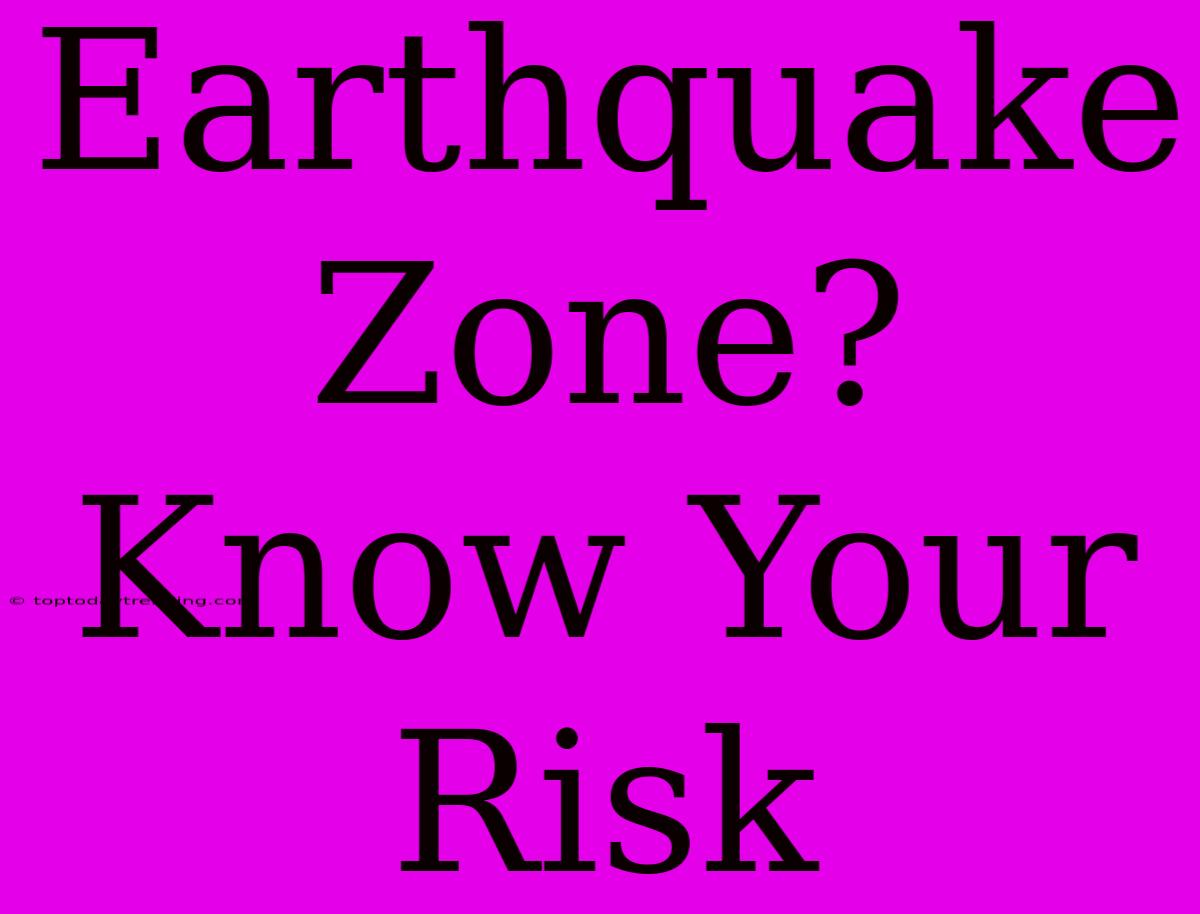Earthquake Zone? Know Your Risk
Earthquakes are a powerful and unpredictable force of nature, capable of causing widespread devastation. While they can occur anywhere on Earth, certain areas are more prone to seismic activity than others. Knowing your risk and taking appropriate precautions can help you stay safe during an earthquake.
What are Earthquake Zones?
Earthquake zones, also known as seismic zones, are geographical regions where the Earth's crust is more likely to experience earthquakes. These zones are typically located along the boundaries of tectonic plates, where immense pressure builds up as the plates move against each other.
Here's a breakdown of how these zones form:
- Convergent Boundaries: When two tectonic plates collide, one plate often slides under the other in a process called subduction. This creates friction and stress, leading to earthquakes.
- Divergent Boundaries: When tectonic plates move apart, magma rises from the mantle, creating new crust. This process can also cause earthquakes, although they are typically less powerful than those at convergent boundaries.
- Transform Boundaries: When two plates slide past each other horizontally, the friction created along the fault line can trigger earthquakes.
Identifying Your Risk
Understanding your risk is crucial for preparedness:
- Locate Your Home: Consult online maps or resources from your local geological survey to determine if your home is located in an earthquake zone.
- Research Historical Data: Learn about the history of seismic activity in your area. Past earthquakes can provide insights into the likelihood and potential magnitude of future events.
- Stay Informed: Follow updates from local authorities and emergency management agencies to stay informed about potential risks and warnings.
Reducing Your Risk: Steps for Preparation
Here are some crucial steps to reduce your risk and prepare for an earthquake:
1. Secure Your Home:
- Reinforce Walls: Strengthen weak walls and ceilings to prevent collapse.
- Secure Heavy Objects: Anchor heavy objects like bookcases and televisions to prevent them from falling.
- Check Plumbing and Gas Lines: Secure any potential hazards like water heaters and gas lines.
- Maintain Structural Integrity: Regularly inspect your home for cracks, weak points, and other structural issues.
2. Create an Emergency Plan:
- Develop an Evacuation Plan: Establish safe meeting points and practice evacuation routes with your family.
- Assemble an Emergency Kit: Prepare a kit with essential supplies like water, food, a first-aid kit, a flashlight, a radio, and other necessities.
- Teach First Aid and CPR: Learn basic first aid and CPR to provide immediate assistance in case of injury.
- Stay Informed: Subscribe to emergency alerts and be prepared to receive information through your phone or radio.
3. Be Prepared for Aftershocks:
- Expect Aftershocks: Be aware that even after a major earthquake, aftershocks can occur and may be just as dangerous as the initial event.
- Stay Alert: Remain vigilant and follow safety guidelines even after the shaking stops.
- Monitor for Damage: Inspect your home and surroundings for any damage, as aftershocks can exacerbate existing problems.
Living Safely in an Earthquake Zone
Living in an earthquake zone requires a proactive approach to safety. By understanding your risk and taking proactive steps, you can mitigate potential dangers and ensure your well-being during a seismic event. Remember, being prepared is the best way to stay safe.

